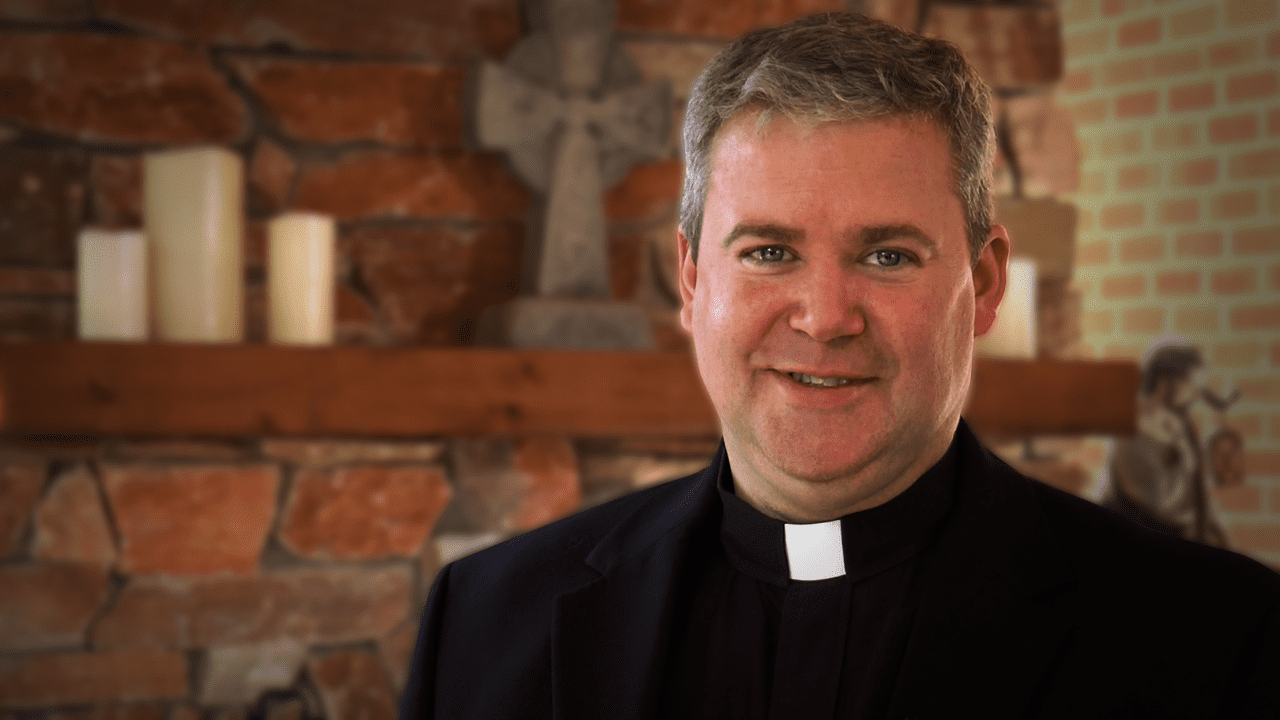[Editor’s Note: Father Jeffrey Kirby, known to the readers of Crux for his weekly spirituality column, is the parish priest of Our Lady of Grace Parish in Indian Land, South Carolina. He holds a doctorate in moral theology from Santa Croce University in Rome and a Master of Arts in Philosophy from the Franciscan University of Steubenville, and serves as an Adjunct Professor of Theology at Belmont Abbey College and Pontifex University. His latest book is Kingdom of Happiness: Living the Beatitudes in Everyday Life. He spoke about it with Charles Collins.]
Collins: Why did you write this book?
Kirby: The Christian tradition has a lot to offer contemporary people, especially those who are searching for happiness. In my doctoral work in moral theology, I explored our rich treasury of teachings and thoughts on happiness. These studies almost always revolved around the Beatitudes. Being in parish work, however, I realized that this inheritance wasn’t getting to the folks in the pews.
And so, I wrote Kingdom of Happiness: Living the Beatitudes in Everyday Life as an attempt to bridge this divide. The book is an effort to share the depth of Christian teaching on happiness by showing the richness of the Beatitudes and how they can help us today.
Given the marvels of the modern world, especially in the West, why do you think so many people are so unhappy today?
The current struggle for happiness and the battle to overcome misery are based on many false or incomplete definitions of happiness. In the West, we have a culture of comfortability and are able to create artificial environments. This power breeds certain perceptions of happiness.
We begin to think that happiness is merely a synonym for pleasure or euphoria. We convince ourselves that happiness is having everything go according to our plans all the time and in every way. But this isn’t reality and no such definition of happiness can endure the pushes and pulls of real life.
The definition of happiness given by the Beatitudes is simpler and more practical. Happiness is knowing that we were created good and that we are loved and blessed. It means allowing this goodness to flourish in ourselves and being an instrument of this goodness in others.
This holistic understanding of happiness welcomes the reality of suffering. It redeems it and allows suffering to serve a higher good and a more noble purpose, namely, our happiness through the enrichment of human life and society.
I think of some of the prayers we learned growing up: They are focused on a future happiness, in heaven. This world is the classic “vale of tears.” Is it right for a Christian to seek an “earthly” happiness?
Seeking happiness here in this life is our vocation as children of God. But such a calling, while granting us happiness here and now, also points us to an infinite happiness that is beyond the passing things of this world.
Certainly, therefore, the Beatitudes rely on a sense of eternity. Living our lives with a poverty of spirit, sorrow over evil, meekness, hunger for righteousness, purity of heart, peace, and a willingness to suffer persecution for the sake of goodness requires us to look beyond ourselves. It points us to heaven and divine fellowship and we could not fully appreciate this eternal happiness without the journey and suffering of happiness in this life.
You write about “anti-beatitudes”. What do you mean by these?
In moral theology, we often speak of vices or obstinate sin. While these terms are helpful, I thought a different expression might help to better express them. And so, I used the term “anti-beatitude,” trying to show that moral darkness is an anti-happiness.
The anti-beatitudes, therefore, are the traditional seven deadly sins: pride, lust, gluttony, greed, sloth, wrath, and envy. They are the opposite of the Beatitudes, which are the sure path of authentic and vibrant happiness.
Which beatitude do you think is the most misunderstood?
Of the Beatitudes, I think the one that is most misunderstood is meekness. Many think that meekness is being overly passive or subordinate. Biblically, however, meekness is knowing one’s role and place. It’s fulfilling the responsibilities of one’s vocation and not usurping the role or place of another. In accomplishing our duties, our expression of meekness might need to be assertive, direct, or even corrective.
With this understanding, a quiet nun could be meek but so could a drill sergeant. Both are living and laboring to complete their respective duties. Both are meek.
What effect do you hope your book will have on the reader?
Through Kingdom of Happiness: Living the Beatitudes in Everyday Life, it’s my great hope that people will give happiness another try. It’s my desire that readers of the book will know that happiness is possible. Rather than giving up on it or dismissing it as some childhood fantasy, people might realize the insufficiencies of former definitions and try to live the Beatitudes as a new path to happiness.
With this hope in mind, I’d like to mention the #BeBlessedChallenge. This is a social media challenge that invites people to commit to intentionally living the Beatitudes for eight days. The website BeBlessedChallenge.com will walk people through the challenge.















